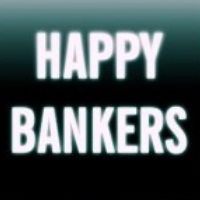Major Banks Use Pay-Card Scheme to Shift Millions of Dollars in Costs to the Unemployed

Being unemployed can mean paying all kinds of fees to banks that have contracted with state governments to distribute jobless benefits.
A new report (pdf) from the nonprofit group National Consumer Law Center (NCLC) says Americans out of work are paying millions of dollars in unnecessary fees as part of receiving their unemployment payments. This is because many states encourage or even require the jobless to use bank-issued payment cards to access their funds.
The NCLC found that many states, like Arizona, make it difficult for residents to sign up for direct deposit with the state government. And in at least five states—California, Indiana, Kansas, Maryland and Nevada—direct deposit is not an option at all.
The consumer group contends that this situation is illegal under federal law prohibiting states from requiring benefits recipients to open an account with a specific bank.
Banks involved in issuing payment cards include JPMorgan Chase, U.S. Bancorp and Bank of America.
These banks make more money when the cards are used. The fees they charge jobless recipients involve, among other things, balance inquiries, phone calls to customer support, and purchases using a personal identification number.
The report concedes that the cards may be the best option for people who don’t have bank accounts, but notes that most people receiving unemployment benefits already have accounts.
-Noel Brinkerhoff
To Learn More:
Report: Unemployed People Pay Millions in Needless Fees Under State-Run Payment-Card Programs (by Daniel Wagner, Associated Press)
2013 Survey of Unemployment Compensation Prepaid Cards (National Consumer Law Center)
2013 Survey of Unemployment Compensation Prepaid Cards: States Save Workers Millions in Fees; Thumbs Down on Restricting Choice (by Lauren K. Saunders and Jillian McLaughlin, National Consumer Law Center) (pdf)
Banks Squeezing Money from Unemployed (by Noel Brinkerhoff, AllGov)
Big Banks Take Aim at Low-Income Americans with Hidden Fees (by David Wallechinsky and Noel Brinkerhoff, AllGov)
- Top Stories
- Unusual News
- Where is the Money Going?
- Controversies
- U.S. and the World
- Appointments and Resignations
- Latest News
- Trump Orders ICE and Border Patrol to Kill More Protestors
- Trump Renames National Football League National Trump League
- Trump to Stop Deportations If…
- Trump Denounces World Series
- What If China Invaded the United States?






Comments